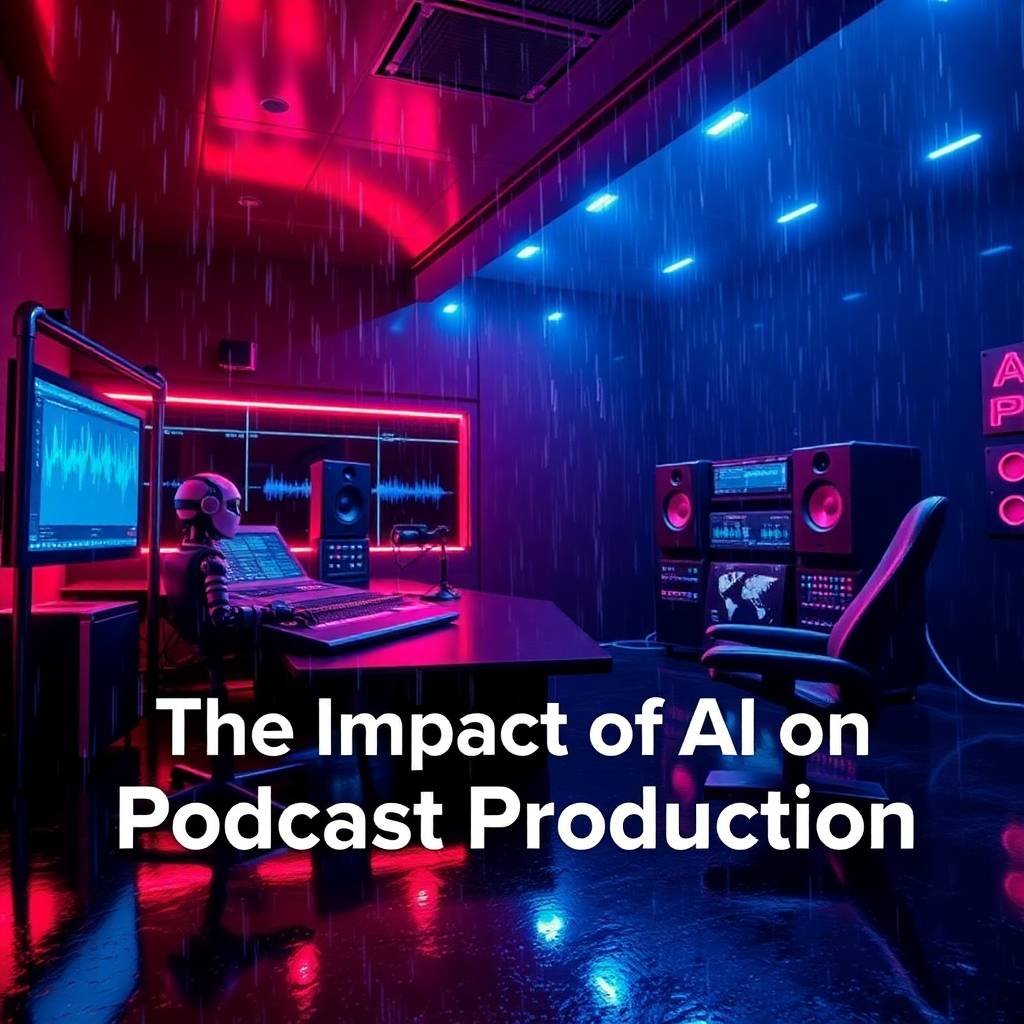Introduction: AI Reshaping the Podcasting Landscape
Podcasting has rapidly evolved from a niche hobby to a mainstream content medium with millions of episodes available across countless topics. With this explosion in popularity comes the challenge of producing high-quality, engaging content at scale — a task that can be resource-intensive for independent creators and large teams alike.
Artificial Intelligence (AI) is stepping in as a powerful ally, transforming how podcasts are created, edited, and distributed. By automating time-consuming tasks, improving sound quality, and offering intelligent content recommendations, AI is fundamentally reshaping the podcasting workflow.
How AI Is Transforming Podcast Creation
AI-Generated Scripts and Voiceovers
AI writing assistants can help podcasters generate episode outlines, intros, and even full scripts. For those looking to scale quickly or produce content in multiple languages, AI-powered voice synthesis tools can create natural-sounding voiceovers, reducing reliance on human narrators or voice actors.
Intelligent Topic Suggestions and Content Planning
AI tools analyze audience trends, search engine data, and podcast performance metrics to suggest high-interest topics. This helps creators stay relevant, fill content gaps, and plan episodes that resonate with their target audience.
Streamlining Post-Production with AI
Automated Audio Editing and Cleanup
AI-powered editing software can automatically remove background noise, fix volume inconsistencies, and eliminate filler words like “um” and “uh.” This drastically reduces the hours podcasters spend in post-production, helping them publish episodes faster without compromising audio quality.
Transcriptions and Closed Captions
AI transcription tools convert spoken words into accurate text, making podcasts accessible to a wider audience, including those with hearing impairments. Additionally, transcripts improve SEO by providing searchable content for platforms like Google and YouTube.
Enhancing Distribution and Marketing Through AI
AI-Driven Metadata Optimization
AI tools analyze keywords and trends to generate optimized podcast titles, descriptions, and tags. This helps podcasts rank higher in search results on platforms like Spotify, Apple Podcasts, and Google Podcasts, increasing visibility and listener reach.
Audience Insights and Engagement Analytics
By tracking listener behaviors such as drop-off points, episode popularity, and listening patterns, AI provides podcasters with valuable insights. These analytics help creators tailor content, improve engagement, and grow their audience more effectively.
The Benefits of AI in Podcast Production
Faster Production Cycles
By automating editing, transcription, and content planning, AI significantly cuts down production time, allowing podcasters to release episodes more frequently.
Improved Content Quality
AI tools enhance audio clarity, remove distractions, and help tailor content to listener preferences, resulting in a more polished and engaging podcast.
Cost-Effective for Independent Creators
AI reduces the need for large production teams or expensive equipment, making professional-grade podcasting accessible to solo creators and small teams.
Challenges and Ethical Considerations
Over-Reliance on Automation
While AI streamlines many tasks, relying too heavily on automation can reduce the human touch that makes podcasts unique and relatable.
Accuracy and Bias in AI Tools
AI-generated content and edits may occasionally misinterpret context or introduce biases, requiring human review to ensure quality and fairness.
Intellectual Property and Voice Cloning
The use of AI-generated voices raises legal and ethical questions about consent, copyright, and authenticity, especially when replicating real individuals.
The Future of AI in Podcasting
Real-Time Editing and Feedback
Upcoming AI tools may offer live editing suggestions during recordings, helping creators improve their delivery and audio quality on the spot.
Interactive Podcasts and Voice AI Integration
Integration with smart assistants like Alexa and Google Assistant could enable listeners to interact with podcast content, creating personalized and dynamic listening experiences.
Multilingual Translation and Dubbing
AI advancements will enable real-time translation and dubbing, breaking language barriers and expanding podcasts’ global reach.
Conclusion: Embracing AI for Smarter Podcasting
Artificial Intelligence is transforming podcast production by making it faster, more efficient, and more accessible. By automating routine tasks, enhancing audio quality, and providing deep audience insights, AI empowers creators to focus on what they do best—telling great stories. As AI technology continues to evolve, podcasters who embrace these tools will be well-positioned to innovate, engage listeners, and grow their audiences in the dynamic world of digital audio.

